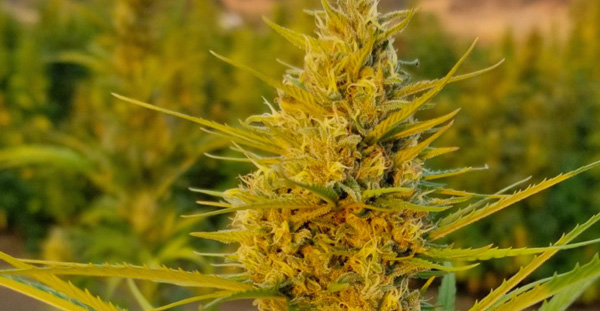
St. Louis Science Center Adds Hemp Plants to Exhibit
The St. Louis Science Center is adding Colorado-bred hemp plants by Trilogene Seeds to its internationally famous agricultural learning center, the GROW pavilion.
Hemp, aka Cannabis sativa, is botanically the same plant as marijuana. But hemp produces little to no THC, the psychoactive compound in marijuana. Hemp was federally legalized in 2018 and is now grown for its edible grain, CBD and fiber.
Hemp’s addition to the plants growing in the 5000-square foot GROW pavilion is a step toward normalizing hemp in U.S. society, said Matt Haddad, CEO of Trilogene Seeds, the Colorado-based hemp seed breeder that provided the hemp seeds GROW is planting. Over one million people visit the center annually.
“Having our hemp cultivar at GROW is not just a huge honor it educates that many more people to the amazing properties of the hemp plant and helps legitimize a crop that was once grown by our founding fathers,” Haddad said. Hemp plants are often mistaken for marijuana.
Hemp was commonly grown by early American colonists, including George Washington. It was once an economically significant plant for many states, such as Pennsylvania, Ohio and Kentucky. Hemp fiber was used for many purposes, including for rope and canvas sails.
However, hemp was prohibited as part of anti-cannabis laws enacted in the 1930s. It was not grown again at scale until pro-hemp advocates successfully secured its legalization and opened up a new market for U.S.-grown hemp.
Hemp-grown CBD, a non-psychoactive cannabinoid produced in the hemp plant, generated $4.7 billion in U.S. revenue in 2020, just the second year past legalization, according to market research by the Brightfield group.
Trilogene Seeds, an award-winning hemp breeder using data science to bring new hemp varietals to market, provided seeds to their cultivar “Auto Alpha” to GROW. The GROW team just started planting them this week, Haddad said.
The hemp will be grown in a new exhibit showcasing indoor, controlled environment technology. The hemp will be planted in a grow tent in a hydroponic, soil-less system and in living soil. Visitors can observe differences between things like synthetic (hydroponic) versus mineral (living soil) fertilizer in the hemp’s growth patterns.
Although hemp can be grown hydroponically, in his experience, hemp planted in organically alive soil is healthier, more disease-resistant and produces more desirable compounds, Haddad said.



